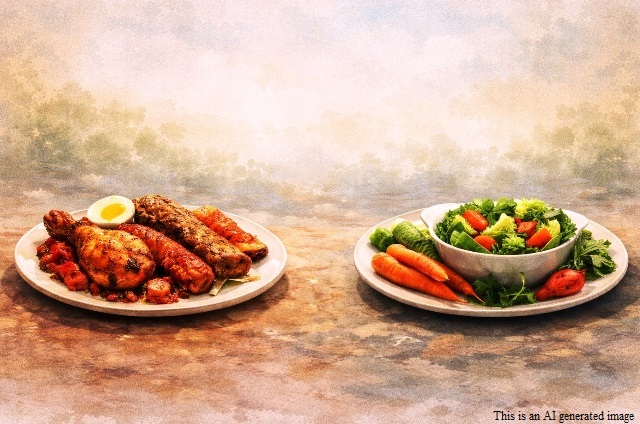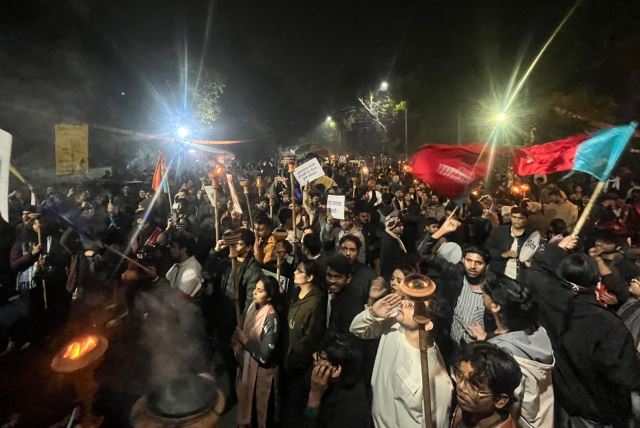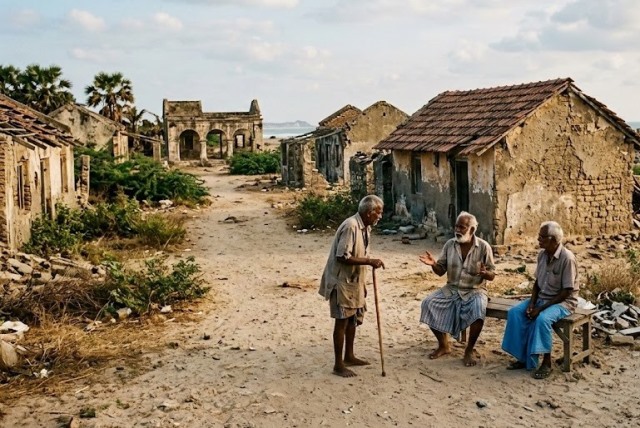
Gujarat Uncorks The Bubbly, A Wee Bit
Gujarat, Mahatma Gandhi’s birthplace, is held as an example of all things Gandhian, good or otherwise. The dilution of Prohibition law to create a ‘wet’ oasis in the Gujarat International Finance Tec-City (GIFT), although not the first departure, has set the tongues wagging.
Of course, neither support nor criticism are loud since the decision supposedly came “from the top.” Also, the set of rules, temporary and with riders, are “business friendly”. That makes for a measure of pragmatism. Business is not a sin, after all.
Is Gujarat, which took to Prohibition even in its earlier avatar as part of the Bombay State in 1949 and has since stuck to it doggedly, experiencing anything new? The availability of liquor has always been an open secret.
Media reports say liquor sales were up by 20 per cent in 2023. Liquor permits on health grounds went up by 58 per cent since 2021, when 40-plus people applied on grounds of insomnia, and anxiety. Seventy-seven Gujarat hotels have permit-liquor stalls, with 18 more applying. The fact, however, is that like non-vegetarianism, non-consumption is deeply ingrained in Gujarat’s upper caste/business class ethos.
Gandhi was supposed to have said that if appointed a ‘dictator’ even for a day, one thing he would do is to impose Prohibition. There is no point blaming Gandhi and his many supporters who, when in power, worked for its success. The fact, again, is that there are as many, and as strong, arguments for and against alcohol.
Article 47 of the Indian Constitution talks about raising the level of nutrition and the standard of living in the country. The objective is to improve public health and the State shall endeavour to bring about the prohibition of intoxicating drinks and drugs which are injurious to health.
Six decades back, in a longish article culled out from the New York Times archives dated February 16, 1964, Thomas S. Brady had rightly predicted: “As anywhere else, law enforcement depends not only on consent but on approval of the governed. Murder and stealing are threats to everybody, and they can be held to a minimum. But tippling, despite Gandhi, is another matter and seems to be here to stay, inside or outside the law.”
Unsurprisingly, the arguments for and against have not changed much. But the values have. If the support is on health grounds, social security and pressures from women’s groups who are potential voters and have proved effective, the opposition ranges from freedom to exercise personal choice.
ALSO READ: ‘Awareness, Not Harsh Laws, Can Impose Prohibition’
Bar owners and alcohol manufacturers, usually men, see their livelihood destroyed and, instead of empathising with women on this sensitive issue, they feel threatened. Vested interests remain well-entrenched. Why, Brady writes that supporters of prohibition included, remotely though, the bootleggers who thrive when an unpopular law is in existence.
An amazing feature of all this grassroots democracy is that there has been no mention of any public health initiatives to tackle alcohol misuse.
As for personal freedom, it is argued that most of the domestic violence crimes against women and children are committed behind closed doors. The new awareness of women’s and children’s rights and welfare in this century has made no dent when it comes to booze-driven violence. It is the neighbour’s problem, not mine, attitude.
At the root is the revenue. And the states that operate the law are always short of it. Brady recorded that Bombay and Maharashtra spent USD one million and lost revenue to the tune of USD30 million in 1964. What Bihar, Telangana and other states lose today is phenomenal. Some like the late Jayalalithaa, in a seeming act of redemption, spent the revenue from alcohol to distribute election-eve freebies.
Liquor mafias have thrived in state after state. From among them come legislators and ministers, obviously in cahoots with the political class. Perish the thought of the alcohol they distribute being of any consumable quality. Little wonder, hooch tragedies are a frequent affair. Investigations are ordered, but nothing comes out.
India is a land where contradictions are clashing, all the time. Hooch sells, prime quality liquor sells even better. Indians’ alcohol intake is small compared to the global one. But Indians are the world’s largest consumers of ‘brown’ liquor, mainly whiskey and rum. It is mind-boggling how brandy, a drink of the colder environments is consumed in Kerala, so close to the equator.
Indian alcohol producers are edging out with their premier products fabled brands like Glenlivet and Chivas Regal. Why, the other day, the Chief Justice of India’s court witnessed an Indian-versus-Foreign tussle, with the rival brands placed on the court’s argument desk.
If premier brands of ‘brown’ liquor are for all to see, can wine be far behind? There is no party in an urban centre without wine being served. Indians are developing a taste for wine, both locally that is produced, and exported, in abundance.
According to October 2023 statistics, there are now 10 million Indians who drink wine regularly, and the wine consumption rate increased in India by 29% in 2022 alone. Furthermore, according to an India Wine Insider (IWI) report, India’s wine market is now estimated to be valued at $238 million.
India celebrates Sonal C Holland, its first and only Master of Wine. But be sure, the tussle between health-morality-social uplift and revenue-personal freedom and business will continue forever.
The writer can be contacted at mahendraved07@gmail.com
For more details visit us: https://lokmarg.com/



